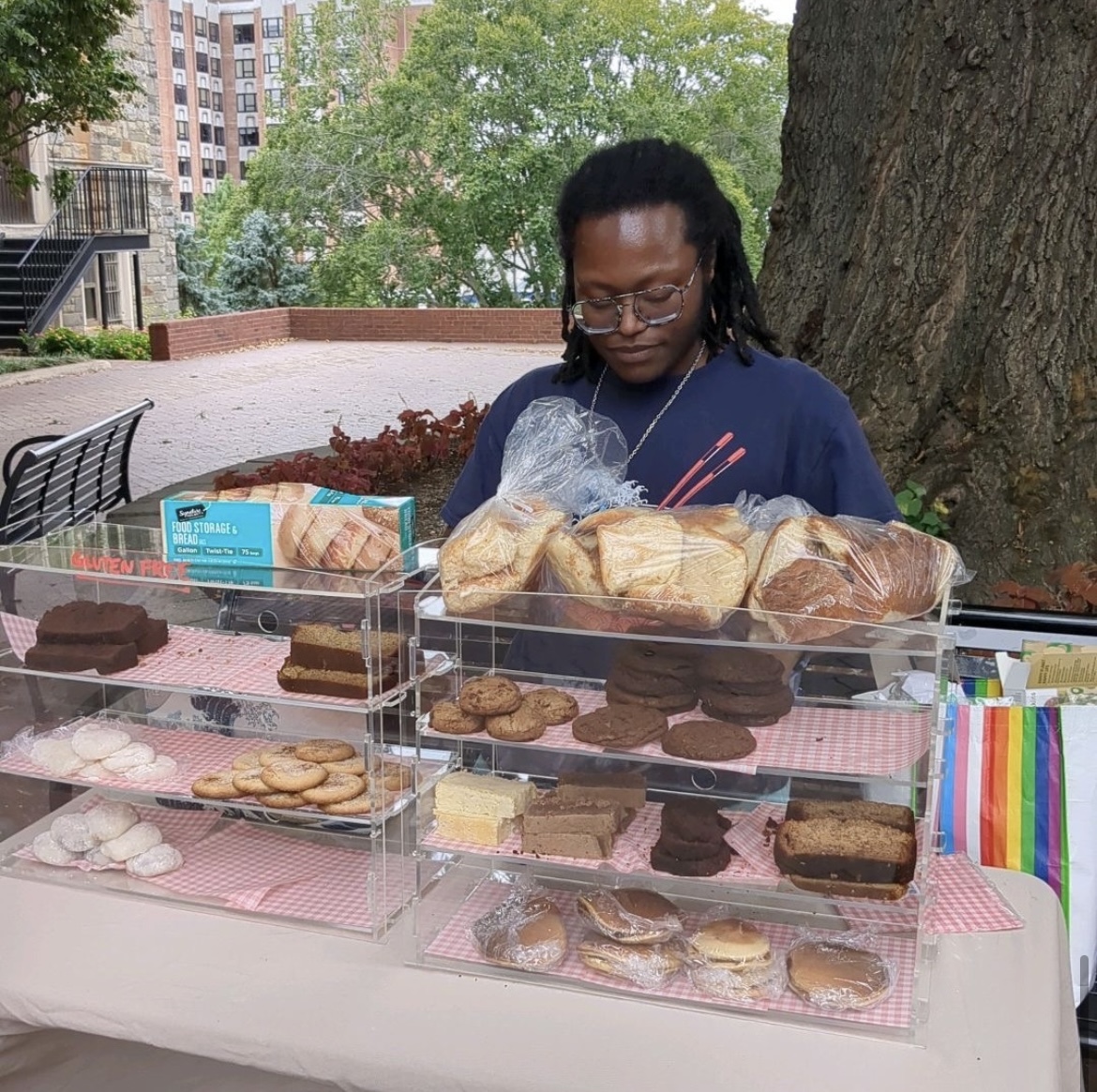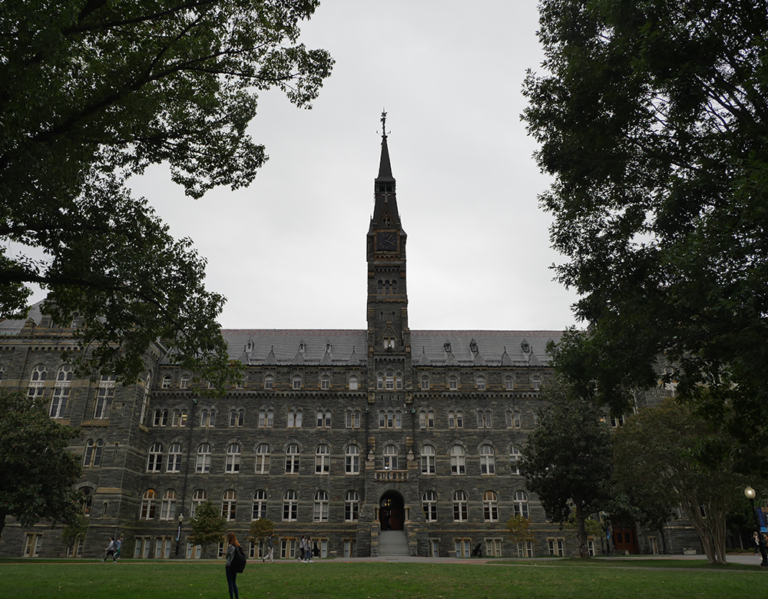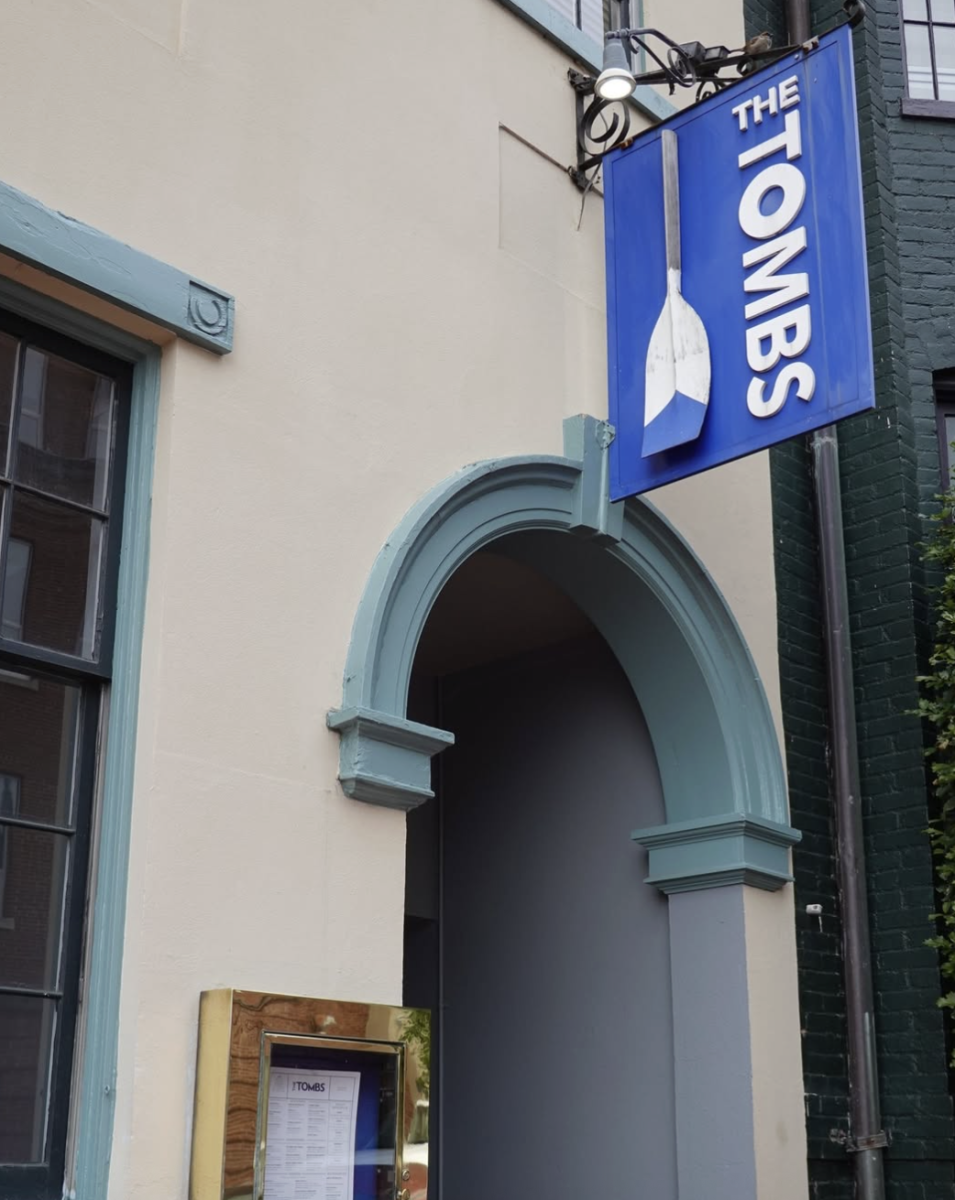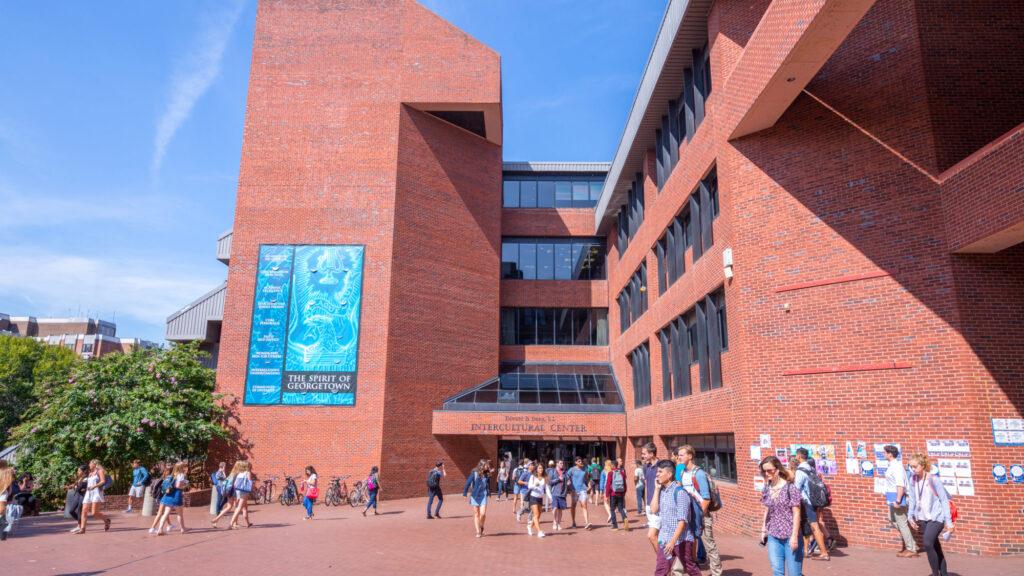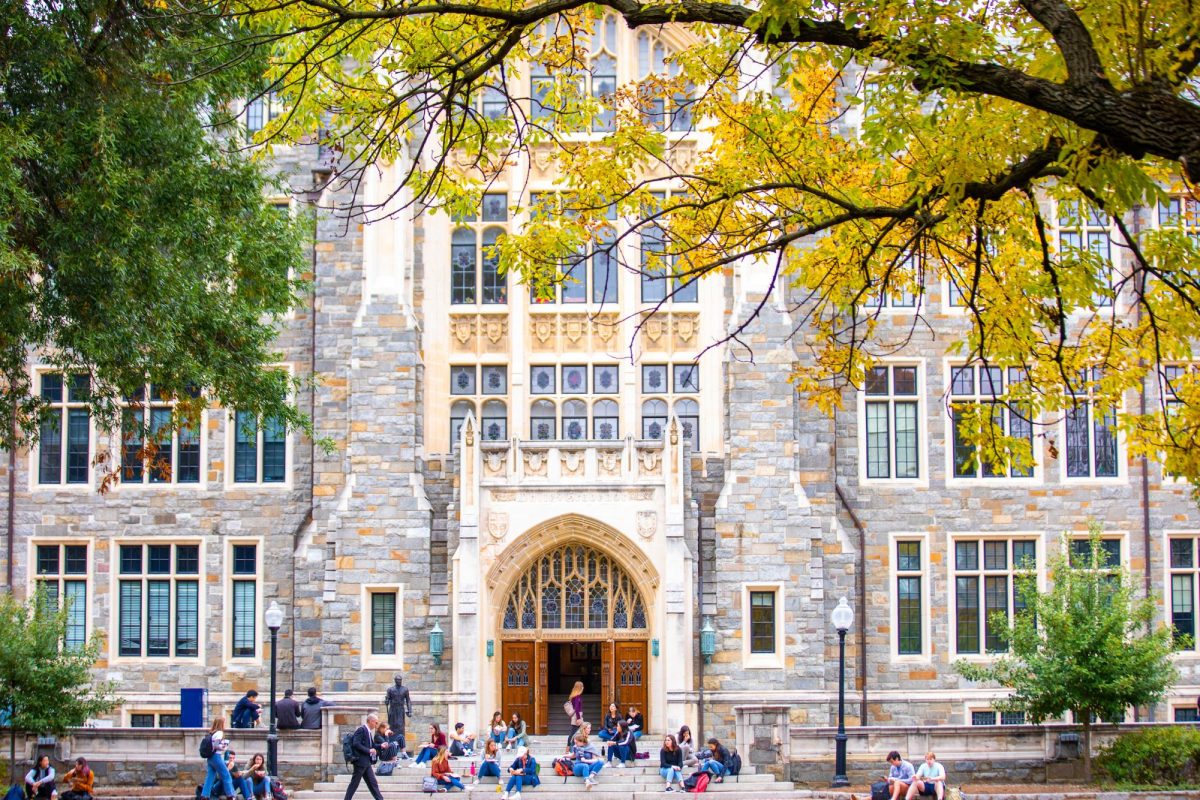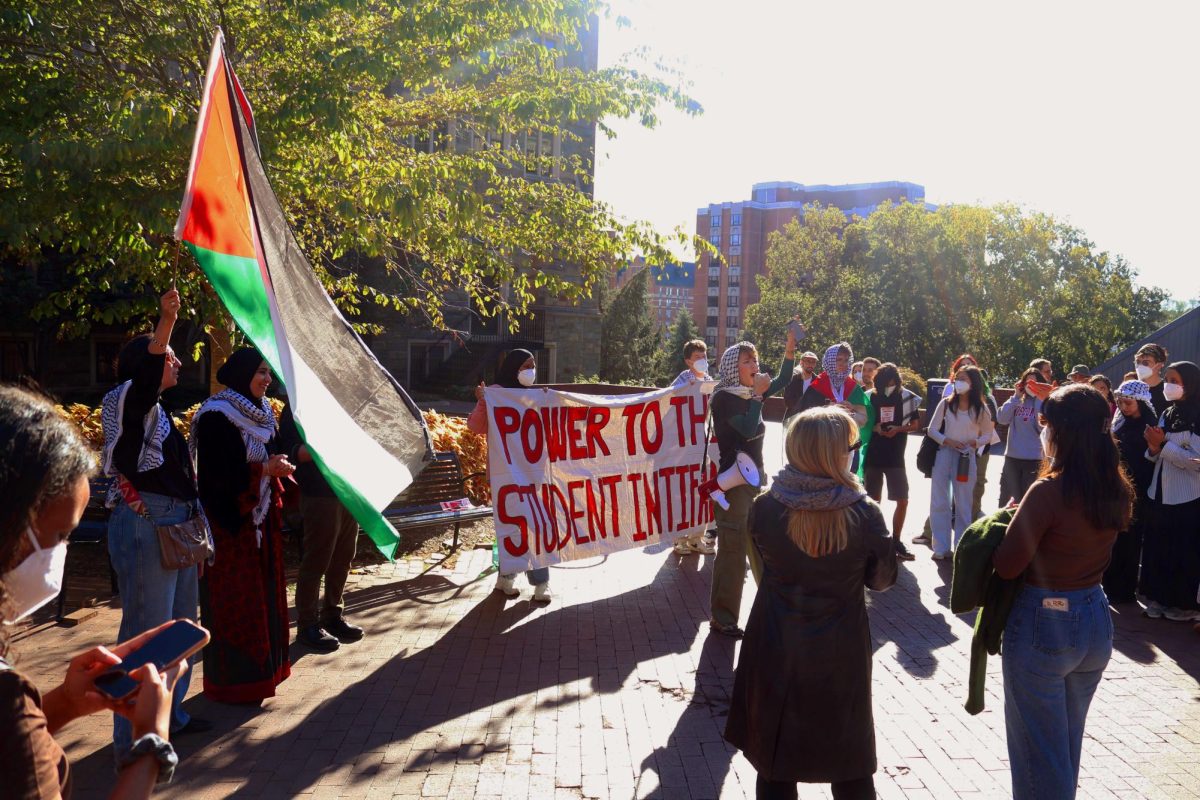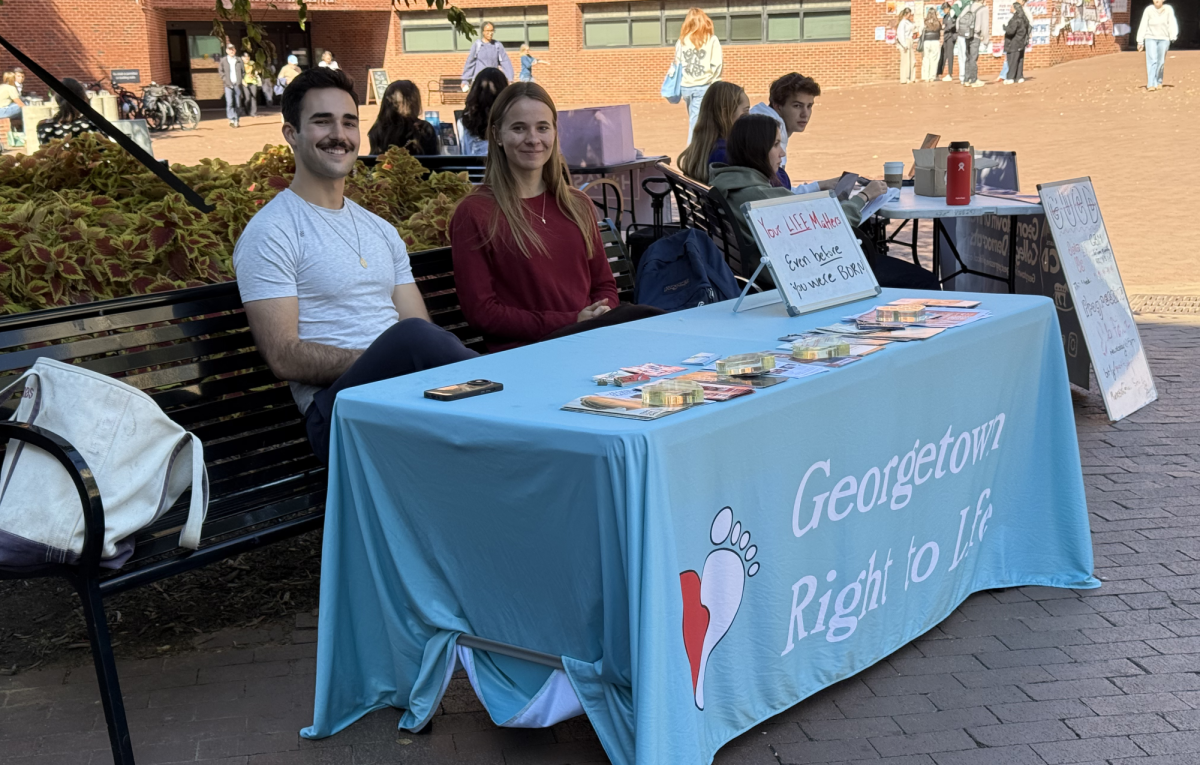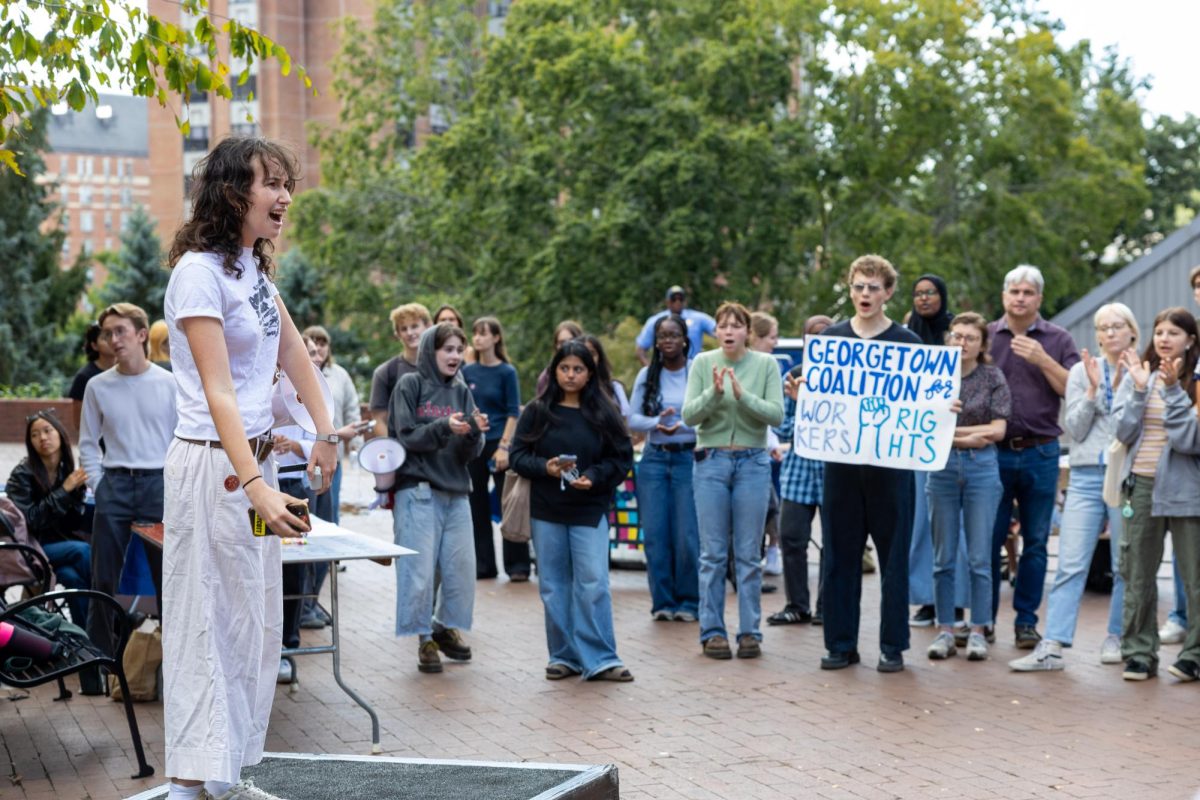A Georgetown University student has sold more than $1,500 in baked goods since starting a Japanese and American dessert business on campus at the beginning of the semester.
Vincent Johnson (CAS ’25) makes desserts, including mochi, banana bread, matcha chocolate chip cookies and dorayaki, or red bean pancakes, in the Pedro Arrupe, S.J. Hall kitchen. Johnson sells his goods under the name WaYō Desserts in Red Square and at the Georgetown University Farmers’ Market (GUFM) on Wednesdays.
Johnson, who is majoring in Japanese, said he was inspired to begin the business after spending his junior year abroad in Japan, living with a Japanese host family, including a host mother who operated a catering business out of her house.
“I’d always been into baking, but I kind of took inspiration from the idea of you don’t necessarily need a storefront to have people want to interact with your business or buy goods,” Johnson told The Hoya. “And there is a charm to homemade things.”
Johnson said he tries to sell items the same day he bakes them and does not follow recipes to bake his desserts, only receiving help sometimes by messaging his former host mother.
“I’d never known how to make red bean paste before,” Johnson said. “Those recipes actually came from my host mother, and then I would try it and then tweak things in whatever way I saw fit to make my own recipe out of it.”
Johnson said he buys bulk orders of flour, eggs and other ingredients weekly or biweekly and purchases specialty ingredients like organic matcha on Amazon, saying that purchasing in bulk allows him to keep prices low and sell many singular items under $2 and none above $3.50.
“There’s not a lot of those options on campus for students in general,” Johnson said. “And I appreciate that I can be that kind of source of something fun, something sweet and something that’s not gonna break the budget.”
Daisy Fynewever (CAS ’26) said WaYō Desserts’ prices and Johnson’s entrepreneurial spirit make her want to return.
“There’s not a lot of affordable sweet treats around here,” Fynewever told The Hoya. “So it’s really fun to stop by and also to know that it’s another student who’s baking these, not just The Corp.”
Daniel Tomas (SFS ’26) said he has bought from WaYō Desserts five or six times.
“I think part of it is convenience,” Tomas told The Hoya. “I mean it’s right there. But I think also in terms of prices, they’re pretty good. I feel like if I wanted to get a fresh baked cookie somewhere in the Georgetown neighborhood, it definitely wouldn’t cost me $1.50.”
Johnson said he also considers students’ dietary restrictions when baking, making sure to have gluten-free and vegan options and baking those items separately from others.
“In offering that, it kind of opens up the idea that students can make things for themselves almost, or the student community can serve itself in a way, which is really nice,” Johnson said.
Tomas said he bought chocolate chip cookies from WaYō Desserts and admired Johnson’s attentiveness to students’ personal tastes.
“The cookies were amazing,” Tomas said. “I really like that they asked, ‘Would you like one that’s a little bit crispier, a little bit more chewy?’ I think people have preferences with cookies, and the fact that the student is very attentive of that, I think, is great. It shows very good entrepreneurship.”
Johnson said he started with $1,500 for the business, and just broke even since beginning tabling the first week of September.
“I usually make around anywhere between $100 to $250 in a day tabling,” Johnson said.
Johnson has added upgrades to his table in Red Square since starting in September, putting up a display case for the desserts and selling pastries in packaging with a custom WaYō Desserts sticker.
Johnson switched out his “Back to School Menu” for “October Menu” Oct. 1, adding pumpkin bread, candied sweet potatoes and strawberry mochi for fall. Johnson said he plans to continue his business until he graduates in May and hopes to do more seasonal desserts and branch out into catering.
“I think it’s a great community building thing, because people stop in line, like if they’re forming a line — which is crazy, I’ve never in my life thought I would have a line — but people form a line and then talk to people,” Johnson said.
“It kind of gives me the idea of, Georgetown is a community,” Johnson added.


